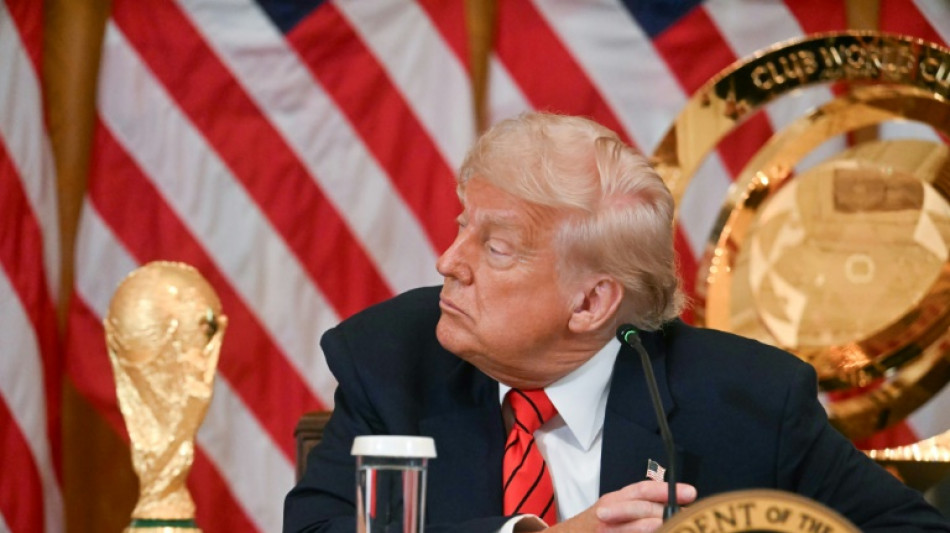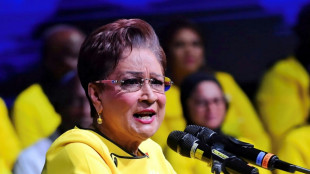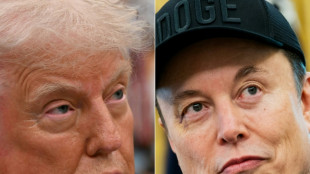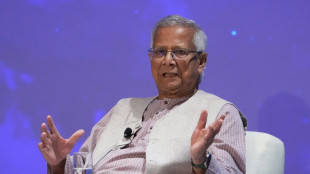

Trump trade, immigration policies clouding World Cup preparations
When the United States, Mexico and Canada launched their joint bid for the 2026 World Cup in the shadow of the Statue of Liberty, the prevailing mood was unmistakeably upbeat.
Peace, love and harmony: three countries joining forces in a "United Bid" to roll out the welcome mat for the most popular sporting carnival on the planet, a beacon of hope in a polarised world.
"We don't believe sport can solve all the issues in the world," US Soccer chief Sunil Gulati told an audience at a Manhattan skyscraper.
"But ... we believe this is a hugely positive signal and symbol of what we can do together in unifying people, especially in our three countries."
Fast forward eight years, and the soaring optimism that accompanied the bid's launch in 2017 has run into some stiff geopolitical headwinds, the re-election of President Donald Trump casting a pall of uncertainty over preparations for the event in ways that few could have imagined.
While Trump has been a staunch backer of the World Cup from the outset, the US leader has nevertheless taken a combative stance to co-hosts Mexico and Canada since returning to the White House, from trade wars to border crackdowns, while simultaneously calling for Canada to become the "cherished 51st state" of the US.
That in turn has led to Canada's Prime Minister Mark Carney vowing to pivot away from the US, declaring in March that "the old relationship we had with the United States -- based on deepening integration of our economies and tight security and military cooperation — is over."
- 'Tension's a good thing' -
Trump, who enjoys a close friendship with Gianni Infantino, the president of world football's governing body FIFA, the organisers of the World Cup, has laughed off suggestions that trade turmoil could impact the tournament.
"Tension's a good thing, I think it makes it much more exciting," Trump said in March when asked how his administration's tariffs against Canada and Mexico might affect the World Cup.
Trump's policies, though, already appear to be hurting US tourism, with hotel search site Trivago last month reporting double-digit percentage declines in bookings to the US from visitors from Japan, Canada and Mexico.
Figures from the US government's National Travel and Tourism Office released in April found an 11.6% decline in visits to the US from overseas in March compared to a year earlier.
Andrew Zimbalist, an economics professor at Smith College in Northampton, Massachussetts whose books include "Circus Maximus: The Economic Gamble Behind Hosting the Olympics and the World Cup", believes Trump's economic policies could reduce the number of international fans travelling to the World Cup.
But, Zimbalist added, "in terms of the actual playing of the games, the tariffs don’t affect athletes."
"So unless the political situation internationally deteriorates further and people decide to boycott the games in large numbers, I wouldn't anticipate a very large impact," he told AFP.
- 'Seamless experience' for fans? -
Other commentators have questioned whether World Cup fans will be deterred by the Trump administration's hardline border crackdown, which has seen visitors from countries including France, Germany, Australia and Canada either turned away at the border or subjected to harsh interrogation and detention.
"Will soccer fans really want to crisscross our borders right now — and be squinted at by guards simply because they speak a Romance language or risk being held on a cold floor in a detention cage?," Washington Post columnist Sally Jenkins asked recently.
The Trump administration's 2026 World Cup Task Force last month insisted all fans would be welcome, saying football supporters could look forward to a "seamless experience" when visiting the US.
Vice President JD Vance though cautioned that foreign visitors would have to leave at the end of the tournament.
"We'll have visitors, probably from close to 100 countries," said Vance, the vice-chair of the World Cup task force.
"We want them to come. We want them to celebrate. But when the time is up, they'll have to go home."
John Zerafa, a Britain-based sports communications strategist, believes the Trump administration may need to "short circuit" current visa processing wait times in order to facilitate large numbers of foreign fans at the World Cup.
"I think the US and the Trump administration will go out of their way to try and make that process as smooth as possible," Zerafa told AFP.
"But there's also the other part of how that stacks with the MAGA agenda and closing borders. There's a real dichotomy there for Trump and the MAGA base -- you're letting the world in but at the same time you're trying to shut the world out," Zerafa added.
"Those two things are very difficult to co-exist, and which one is going to win the day? I can certainly envisage examples of fans applying for tickets, but not being granted visas. And you only need a couple of those stories to emerge in the runup to the World Cup to start painting a difficult backdrop for FIFA and the US."
P.Mueller--MP



